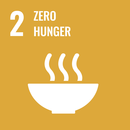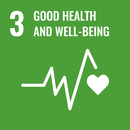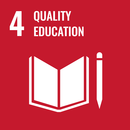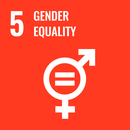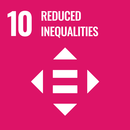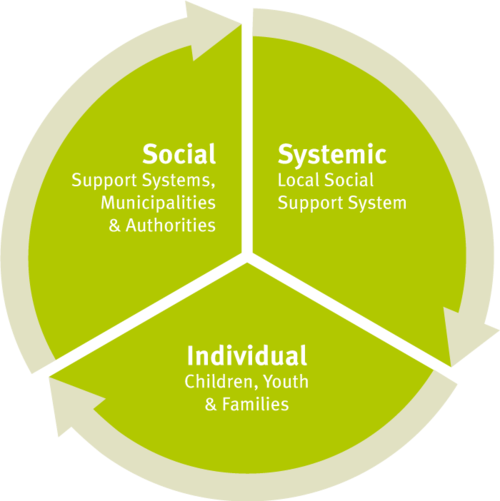Future Independent Life through Learning and Opportunities - FILLO
Promoting Inclusive Learning and Living Opportunities in the Republic of Kosovo
Short Description
CONCORDIA Projekte Sociale Kosovo (CONCORDIA) took over the operational responsibility for an inclusive and educational day centre in 2021 - the CONCORDIA Tranzit Centre. The center is situated in the heart of the Tranzit community in Prizren where many families with Roma, Ashkali and Egyptian roots live. The municipality of Prizren - the second largest in Kosovo with a population of approximately 180,000 - is one of the most culturally and ethnically heterogeneous municipalities in the country. CONCORDIA Tranzit Centre offers pedagogical activities in Early Childhood Education, homework tutoring and a daily warm meal. Teachers offer individual and group music lessons and the center has its own Choir and Orchestra ensembles. Also, direct basic services are offered as well as social and psycho-emotional counselling.
FILLO composes a multidisciplinary team - consisting of social workers, psychologist, nurse, pedagogues and coordinator - which will identify the specific needs and tailor the required integrated social services for the target groups. Depending on the needs identified, services will be provided either at the CONCORDIA Tranzit Centre or in the immediate community and families. FILLO will further develop the existing CONCORDIA Tranzit Centre programme and ensure integrated service delivery. This will transform the day centre into a community centre that directly supports vulnerable children, youth, women and families. The delivery of integrated social services at the community level will ensure access to quality social services due to its holistic preventive nature and will generate significant social impact. In addition, the improved services will be accompanied by a series of sensitization activities and an advocacy strategy that will prevent violent and abusive behaviour in the long term.
Project Background
According to the United Nations Children's Fund (UNICEF), every second child in Kosovo lives in poverty. Two thirds of the children of Roma, Ashkali and Egyptian communities live in poverty and one in three in extreme poverty. In a country still reeling from the experience of war and with the youngest population in Europe, strong, supportive families and access to quality education are key to enabling children and young people to move beyond marginalisation to a promising future. To create this change, the following root causes must be addressed:
- Within the Roma, Ashkali and Egyptian communities, children are particularly vulnerable: Poverty, as a key determinant of a person's life course, determines access to education, public services and the labour market. Children and young people are most affected by poverty when they are denied opportunities. UNICEF reports show that more than two-thirds of children aged 1 to 14 have experienced physical and psychological abuse. Nearly one in two Roma, Ashkali and Egyptian girls are expected to be married before their 18th birthday (while this is true for 14% of boys). One in ten girls will be married before she is 15. Almost 20% of children from Roma and Ashkali communities have to work.
- Access to quality education remains elusive for many Roma, Ashkali and Egyptian children and youth from these communities miss classes and drop out earlier than their peers. While attendance at primary school is almost universal for children in Kosovo (98%), this is the case for only 85% of children from Roma, Ashkali and Egyptian communities. Only two out of three children from these communities attend first grade at primary school age. In contrast to primary education, only 14% of children in Kosovo receive early childhood education, which often leaves children inadequately prepared to attend primary school. One in four girls and one in ten boys from Roma, Ashkali and Egyptian communities do not complete primary school and "even more children [...] are lost in the transition to secondary education." (UNICEF).
- Discrimination and unemployment are not improving within the Roma, Ashkali and Egyptian communities: In 2019, four out of five young people aged 18 to 24 from the Roma, Ashkali and Egyptian communities were not in education, employment or training. Persistent gender discrimination denies women access to economic, political and social opportunities. Gender-based violence remains a sad reality, with one in five women in Kosovo reporting physical or sexual abuse in 2019 and nearly one in three reporting sexual harassment. People from Roma, Ashkali and Egyptian communities face particular discrimination in the labour market. Only one in four employed persons has a permanent contract, which means that the majority of workers are in precarious jobs and particularly vulnerable to exploitation. However, only a few are registered as job seekers, which encourages emigration and structures of informal, undeclared work.
Project Goals
The project enables vulnerable children, youth, women, families and communities in the municipality of Prizren to live self-determined lives free from marginalization and discrimination.
- Project Objective 1 (Systemic Dimension): A professional multidisciplinary team strengthens the local social service system in the municipality of Prizren.
- Project Objective 2 (Individual Dimension): Vulnerable individuals (especially children, youth and women) and families in the municipality of Prizren show improved well-being in terms of health, education and labour market integration.
- Project Objective 3 (Social Dimension): The communities in the municipality of Prizren have an increased awareness of children's rights and children at risk as well as young people turn to CONCORDIA for help and advice.
Strategic Implementation
Existing and planned activities will complement the landscape of social services in the municipality of Prizren. Alongside other civil society organizations (CSOs) in Prizren, CONCORDIA will complement Center for Social Work (CSW) services and cooperate on specific cases.
FILLO aims to provide integrated social, education and health services. Sustainable social inclusion interventions will support individuals and families to move out of vulnerability and marginalisation. The activities, interventions and services will be implemented on the basis of a holistic approach tailored to the identified needs of the target groups in the following three dimensions:
- Systemic Dimension: Building a multidisciplinary team that develops the professionalism of existing services in the spirit of the CONCORDIA Tranzit Centre and integrates direct support and community interventions into the landscape of social services in the municipality of Prizren;
- Individual Dimension: Ensuring the well-being of the most vulnerable individuals and families in Prizren municipality;
- Social Dimension: Supporting communities in general to raise awareness of all forms of existing violence against children and women and to build capacity to support children and young people.
Target group
FILLO has identified the following direct target groups:
- Children (aged 0 - 18 years, especially those affected by extreme poverty and exposed to abuse, neglect and discrimination);
- Young people (18 - 25 years, especially those who are neither in education nor in employment);
- Women (especially mothers with many children, underage mothers, mothers of infants, single mothers);
- Parents seeking help to support their children or to find work (primarily parents of CONCORDIA Tranzit Centre benefit recipients);
- Families at risk of falling apart, those affected by extreme poverty, those seeking care for children or adults with disabilities, and groups of siblings left behind by their parents.
In addition, the following indirect target groups are reached by the project:
- Members of the Roma, Ashkali and Egyptian communities and other vulnerable communities;
- Formal and informal leaders in communities;
- Social professionals (teachers, social workers, medical staff) from the CSW, CSOs and institutional settings;
- Representatives of the Catholic Church of the Diocese of Pristina-Prizren;
- Representatives of the Prizren local government;
- Other stakeholders (national authorities, ministries, funding agencies and development agencies).
The project targets support systems that form the immediate and extended environment for children, young people and families. FILLO targets specific stakeholders in each of these support systems to gain and sustain their support and to engage them in the current project or in follow-up activities. This way CONCORDIA reaches out to families, social professionals and teachers who play a critical role in helping children and youth overcome vulnerability and lead self-determined lives. In order to reach a wider public through advocacy campaigns, representatives of local government, CSW, civil rights organizations, local, regional and international governmental and non-governmental actors are addressed.
Policy Reference
The present intervention approach of FILLO ensures long-term implementation of inclusive, comprehensive social services in the municipality of Prizren. Long-term, systemic and social change builds on the following building blocks: (1) the recruitment of trained staff; (2) the systematic identification of most vulnerable families as well as communities, (3) the resulting development of necessary interventions, and (4) the implementation of intervention models and standard operating procedures. Overall, CONCORDIA's goal is that FILLO's holistic intervention model can be scaled up and replicated elsewhere.
CONCORDIA fully supports the implementation of the current National Strategy for Safeguarding Children's Rights (2019-2023). FILLO will help to work with policy makers, CSOs, local authorities, social sector professionals and community stakeholders to address the significant gaps that exist. If implemented consistently, the Action Plan will go a long way in reducing child poverty, child labour, child neglect, violence and early marriages, and improving overall educational opportunities in Kosovo.
The Municipality of Prizren was tasked with drafting a local action plan for the integration of Roma, Ashkali and Egyptian communities. This was finally formulated in cooperation with the "Kosovo Education and Employment Network" for the years 2019 to 2023 and ratified by the Municipal Council. In the run-up to the establishment of CONCORDIA Projects Sociale Kosovo and the project preparation, meetings were held with the Director of CSW and the Equal Opportunities Officer of the Municipal Council for Roma, Ashkali and Egyptians.



